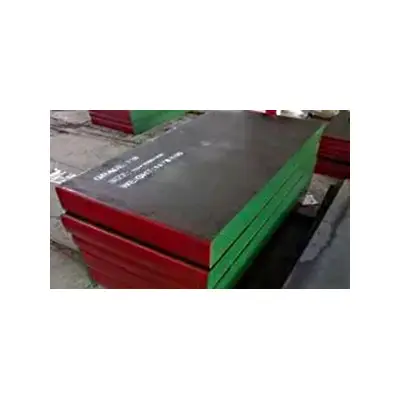We are committed to providing one-stop service for steel pipe products to customers around the world.



P20 Steel Low-carbon mold steels or group P steels are of different types that include P2, P3, P4,P5, P6, P20, and P21 mould steel. Chromium and nickel are the main alloying elements found in group P steels. Plastic mould steel are nitrided or carburized. These steels are capable of being machined into complex and large dies and molds. P20 plastic mould steel are mostly used in the carburized condition.
P20 Steel Applications
plastic mould steel is ideally suited for the production of plastic moulds. Typical applications include die holders, zinc die casting dies, backers, bolsters and injection moulds. The versatility of plastic mould steel with its high tensile characteristics enables uses for a variety of other applications such as shafts, rails and wear strips
All Grades Comparison
|
ASTM A681 |
Werkstoff |
|
P20 |
1.2311 |
Chemical Composition(%)
|
C |
Si |
Mn |
P |
S |
Cr |
Mo |
|
0.28-0.40 |
0.10-0.50 |
0.20-0.80 |
0.030 max |
0.030 max |
1.40-2.00 |
0.30-0.55 |
Mechanical Properties
|
Properties |
Metric |
|
Hardness, Brinell (typical) |
300 |
|
Hardness, Rockwell C (typical) |
30 |
|
Tensile strength |
965-1030 MPa |
|
Yield Strength |
827-862 MPa |
|
Elongation at break (in 50 mm (2″)) |
20.0% min |
|
Compressive strength |
862 MPa |
|
Charpy impact (V-Notch) |
27.1-33.9 J |
HEAT TREATMENT
Forging:
P20 plastic mould steel are forged at 1093°C (2000°F) down to 899°C (1650°F). Forging below 871°C (1600°F) is not recommended for these steels.
Annealing:
Annealing takes place at 760-788°C (1400 to 1450°F) and then the steels are cooled slowly in the furnace at a temperature less than 4°C (40°F) per hour.
Stress Relieving:
When dies are heavily machined, we recommend stabilising just before finish machining in order to relieve machining strains. Heat to 460-500°C. Soak well and allow to cool in the air.
Hardening:
Heat the steel uniformly to 820-840°C until heated through. Quench in oil.
Tempering:
Heat uniformly and soak at the tempering temperature for at least one hour per 25mm of section. Allow to cool in still air.
Carburising / Case Hardening:
Tools produced from may be case hardened, which can achieve a surface hardness of 55 to 59 HRc.
Tufftriding:
At 570ºC tufftriding of P20 tool steel will give a surface hardness of approximately 700HV. Allowing two hours treatment the surface hard layer will be approximately 0.1mm.
Hard Chromium Plating:
To avoid hydrogen embrittlement P20 should be tempered for 4 hours at 180°C for 4 hours after hard chromium plating
Flame / Induction Hardening:
Flame or induction hardening of P20 will achieve a hardness of 50 to 55HRc. Air cooling is preferable, though smaller components may require forced cooling. Temper immediately after hardening.
Cold Working:
P20 plastic mould steel are capable of being readily cold worked by using conventional tooling methods with the alloy in the annealed condition.
Welding:
Conventional methods are used for welding of P20 plastic mould steel.
Forming:
plastic mould steel can be readily formed by conventional methods in the annealed condition.
Machinability:
plastic mould steel have excellent machinability at about 80% that of water hardening steels.
Mill′s test certificate
EN 10204/3.1 with all relevant data reg. chem. composition, mech. properties and results of testing.